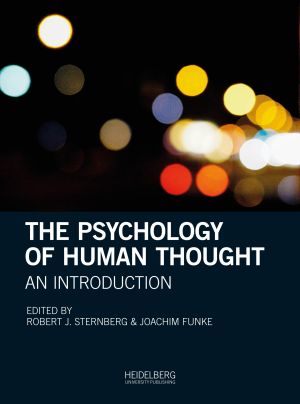Zitationsvorschlag
Lizenz (Kapitel)

Dieses Werk steht unter der Lizenz Creative Commons Namensnennung - Weitergabe unter gleichen Bedingungen 4.0 International.
Identifier (Buch)
Veröffentlicht
Methods for Studying Human Thought
How can theories about unobservable events like cognitive processes be tested and evaluated empirically? Since the method of introspection (self-observation) was criticized very early on for various reasons, cognitive scientists have developed a large toolbox of other methods that yield more objective data for testing theories about cognition. The idea behind this is that cognitive processes like retrieving a memory or solving a logical puzzle lead to observable consequences in behavior. The easiest methods just measure the outcome of a process, e.g. whether an item is solved or not. Depending on how precise the theory is, this can provide surprisingly detailed information about cognition. For example, items may be chosen in a way that different processes predict different solution patterns across these items which may allow the inferring of a strategy. Another set of methods tries to tackle the underlying processes more closely, for example by dissecting response times or by monitoring information uptake with information boards or eye movement analyses. Also, movements during response generation can reveal conflicting response tendencies. Finally, theories about thinking and cognition can profit very much from computer simulations and of course neuroscientific research that investigates the neural underpinnings of the processes.






